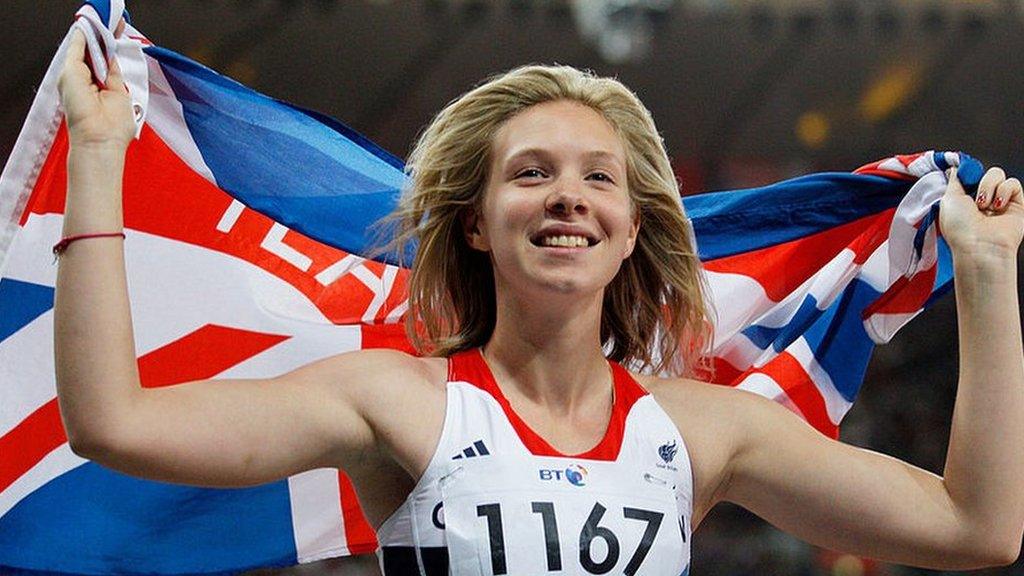Paralympic sports: MPs to hear 'explosive' evidence, says Michael Breen
- Published
Is Paralympic sport classification fit for purpose?
A Parliamentary committee looking at cheating claims in Paralympic sports is set to hear "explosive" evidence on Tuesday, according to one witness.
MPs will discuss the classification process after a BBC investigation uncovered claims of tactics being used to cheat the system internationally.
Michael Breen, father of Paralympian Olivia, will be among the witnesses.
"I firmly believe that the evidence will be extremely powerful, one might even use the word explosive," he said.
The BBC investigation claimed tactics such as taping up of arms, taking cold showers in trunks and even surgery to shorten limbs had been used to get into a more favourable class.
It was announced last week that the classification rules would be revised, with effect from 1 January.
Breen, whose daughter is the T38 long jump world champion, told the BBC: "There is absolutely no question that certain athletes and certain nations have and continue to manipulate the classification system, because it's easy to manipulate. It's not robust, it's not fit for purpose."
But double Paralympic gold medallist Richard Whitehead, who retained his T42 200m title at Rio 2016, questioned the claims.
"I think you've got a case of a disgruntled parent. I think the allegations are just not true," he told BBC Radio 5 live.
At Tuesday's hearing, Paralympic figures will also be asked about the culture in sports after complaints from athletes.
Investigators have discovered GB Para-swimmers were subjected to a "climate of fear".
Who will be giving evidence?
The Digital, Culture, Media and Sport Committee has been looking at the governance of sports, including football.
On Tuesday it will hear from the following witnesses regarding allegations of "cheating, abuse and interference" within Paralympic disciplines:
10:30 GMT: Baroness Tanni Grey-Thompson, 11-time Paralympic gold medallist
11.30: Michael Breen, classification campaigner and father of Paralympian Olivia Breen
12:30 Tim Hollingsworth, chief executive officer, British Paralympic Association
Rio Paralympics 2016: Categories of impairment explained
Analysis
Dan Roan, BBC sports editor
After so many medals and so much acclaim in recent years, this could be a highly uncomfortable day in Westminster for British Paralympic sport.
The movement's authorities are increasingly concerned that a number of well-known British athletes could be publicly named and shamed, accused of cheating the classification system under parliamentary privilege.
At a time when the issue of athlete welfare and the human cost of the country's pursuit of medals is under greater scrutiny than ever, any evidence that Britain has unfairly played the system could prove very damaging.
What are the claims?
A Radio 4 File on 4 special revealed lawyers for the International Paralympic Committee (IPC) are investigating whether several athletes and coaches have deliberately exaggerated disability to boost their chance of winning.
British T37 200m sprinter Bethany Woodward handed back a relay medal she won from an event in the past four years, telling the programme the inclusion of one of her team-mates was "giving us an unfair advantage".
As there is no suggestion the athlete has done anything wrong, the BBC has chosen not to name them.
Woodward, who won an individual silver medal at London 2012, gave up her funding and walked away from the sport, claiming she had lost faith in the way the team was selected.
Baroness Grey-Thompson has previously raised concerns over the system being abused.
Hollingsworth has rejected claims the system is being manipulated to boost medal chances.
'Do I fundamentally believe that something is categorically wrong? No, I don't. It's not endemic," he said.
Tests involve 'sickening pain'
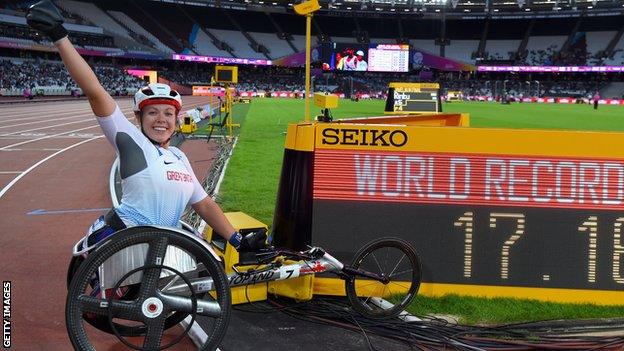
Cockroft added the T34 100m, 400m and 800m world titles to her Paralympic golds in London in July
On Friday, five-time Paralympic wheelchair racing champion Hannah Cockroft told BBC Radio 5 live "humiliating" tests involving "sickening pain" are used to determine which categories Para-athletes can compete in.
"I think my worst one was I had to have electrodes attached to my spine and then electric shocks sent up and down my legs to see which nerves worked - that pain was sickening," said Cockroft, who holds the T34 100m, 400m and 800m world and Paralympic titles.
Cockroft, who was left with brain damage after having two cardiac arrests at birth, believes it is difficult to fool the system.
"I've never lined up and thought someone is a cheat or a fake because there is simply no such thing. I don't believe that anyone could go in that room and know how to cheat their classification," she said.
What does the IPC say?
In a statement, the International Paralympic Committee (IPC) said improved performances were due to "a new generation of high-performance Para-athletes" benefitting from "improved high performance training regimes" and "not because of improper classification".
It added: "The IPC remains deeply concerned about the well-being and welfare of all Para-athletes, and particularly about the well-being of those athletes who have been subjected to third-party allegations of improper classification.
"Although the athletes in question never have been named publicly, the athletes in question know full well that the allegations are being directed at them. Such repeated and unfounded allegations are causing undue stress and tension to these athletes."
The IPC Athletes' Council chair Chelsey Gotell added: "While we appreciate that athletes may have concerns regarding classification - and we are working hard with the IPC to make the system more robust - it is important that athlete concerns are substantiated by factual evidence rather than hear-say, rumour or suspicion."
How does the classification process work?
The World Para-athletics classification system is aimed at determining eligibility and dividing competitors into appropriate categories.
Allocation - The IPC says the aim is that each group consists of athletes who have impairments that cause roughly the same amount of activity limitation.
Category - A classification panel allocates each athlete with a sport class, although some may be classified a number of times during their career.
Numbers - Classes are given a number, and each is prefixed with either a 'T', which stands for 'track', or an 'F' for 'field'.
Groups: Impairments are split into groups - for example, visually impaired athletes are in the tens (T11, T12 and T13); athletes with co-ordination impairments are in the 30s (T31-38), and T42-47 covers those with limb deficiencies. The lower the number, the more severe the impairment.
- Published30 October 2017
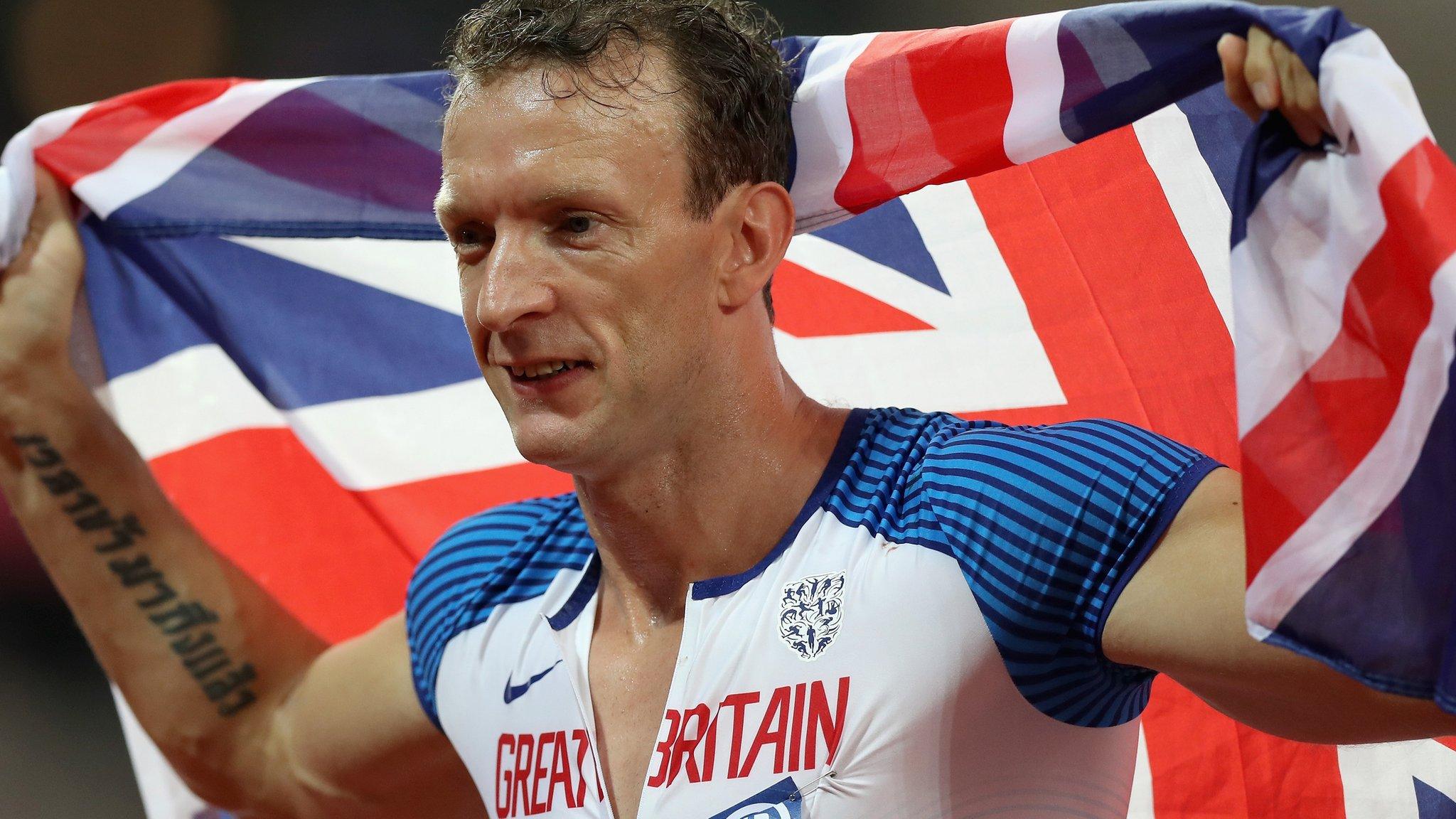
- Published25 October 2017
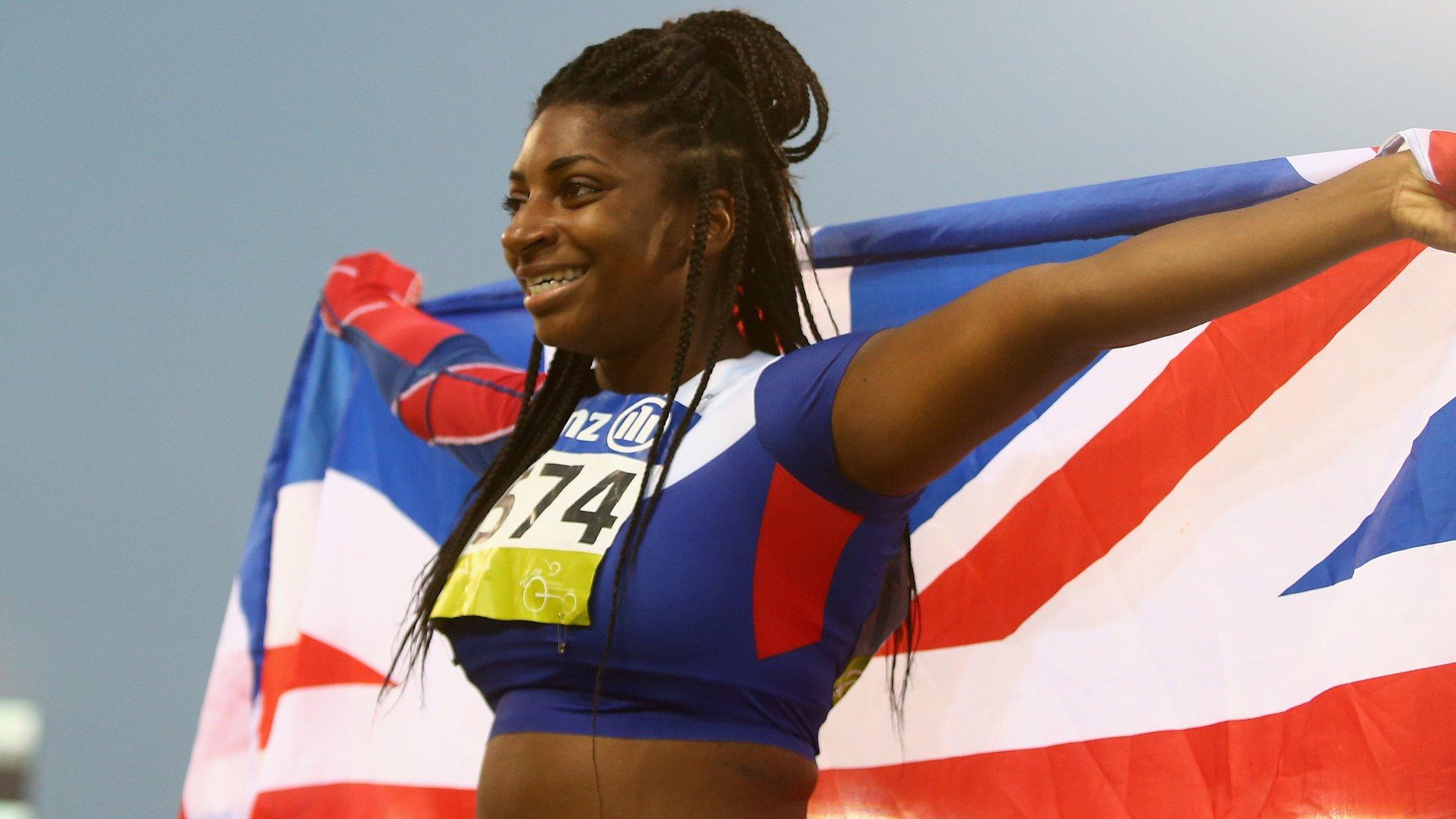
- Published27 October 2017
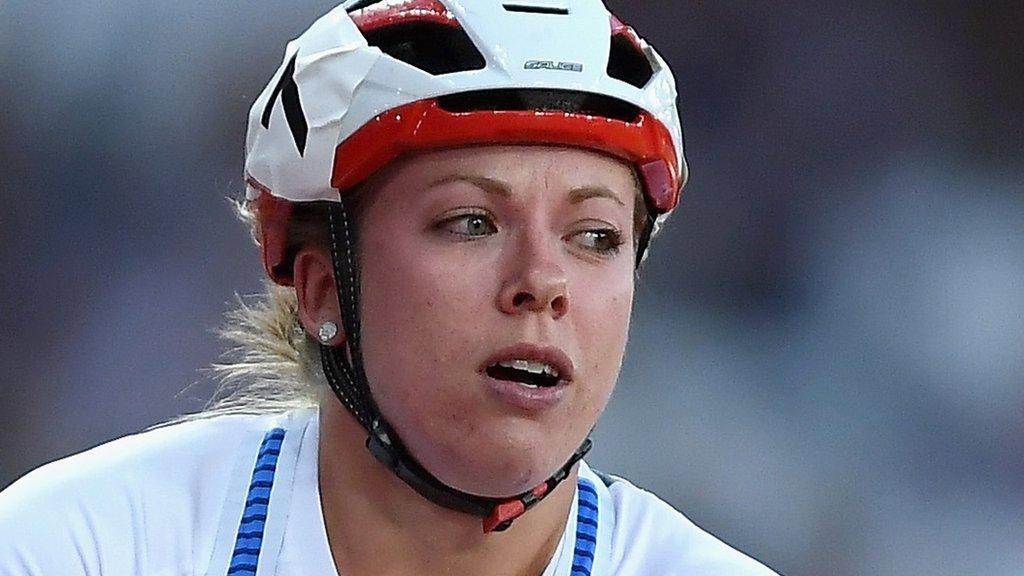
- Published25 September 2017

- Published18 September 2017
